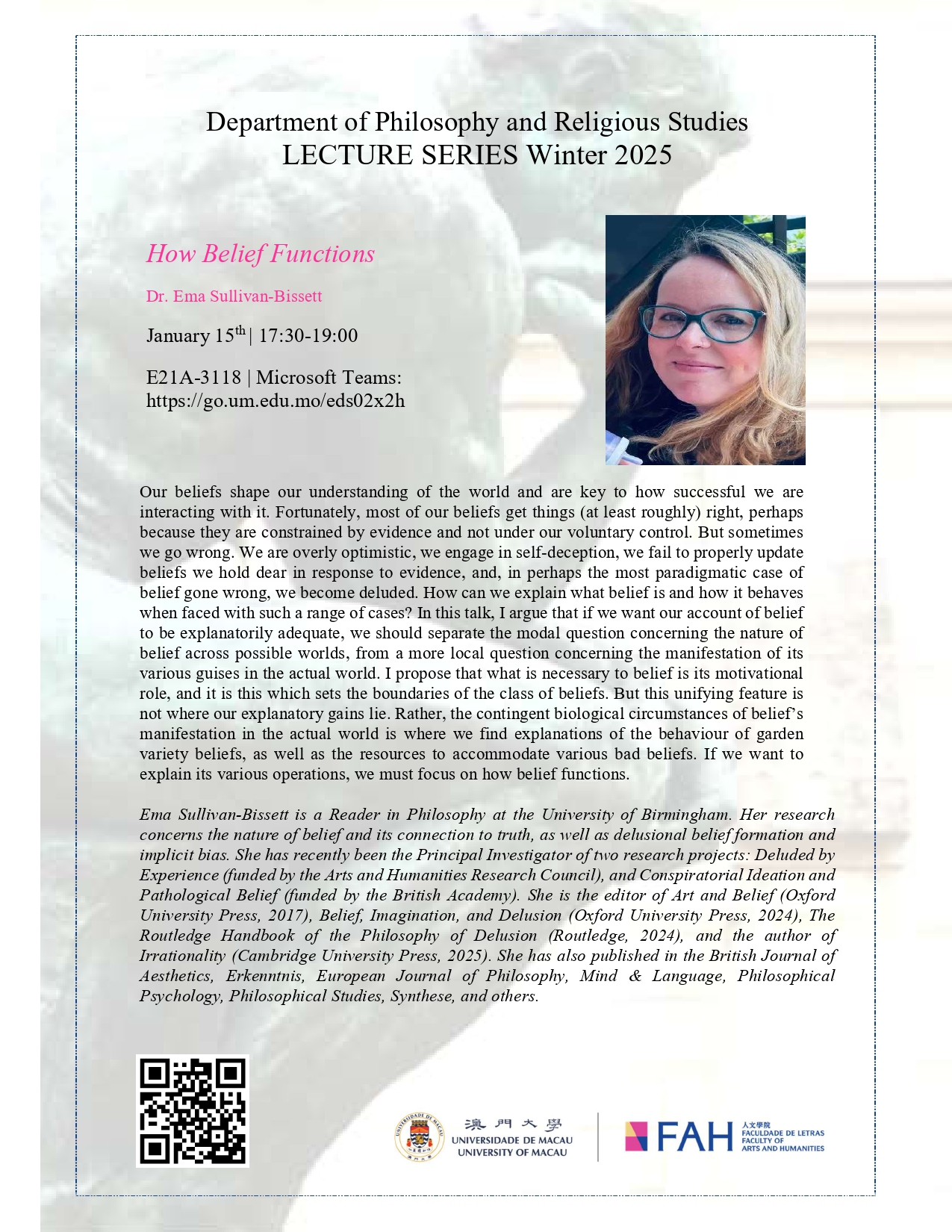

FAH/DPHIL Lecture Series – “How Belief Functions” by Dr. Ema Sullivan-Bissett, University of Birmingham, United Kingdom
2025-01-15 @ 5:30 pm ~ 7:00 pm
Link: https://go.um.edu.mo/eds02x2h
Abstract
Our beliefs shape our understanding of the world and are key to how successful we are interacting with it. Fortunately, most of our beliefs get things (at least roughly) right, perhaps because they are constrained by evidence and not under our voluntary control. But sometimes we go wrong. We are overly optimistic, we engage in self-deception, we fail to properly update beliefs we hold dear in response to evidence, and, in perhaps the most paradigmatic case of belief gone wrong, we become deluded. How can we explain what belief is and how it behaves when faced with such a range of cases? In this talk, I argue that if we want our account of belief to be explanatorily adequate, we should separate the modal question concerning the nature of belief across possible worlds, from a more local question concerning the manifestation of its various guises in the actual world. I propose that what is necessary to belief is its motivational role, and it is this which sets the boundaries of the class of beliefs. But this unifying feature is not where our explanatory gains lie. Rather, the contingent biological circumstances of belief’s manifestation in the actual world is where we find explanations of the behaviour of garden variety beliefs, as well as the resources to accommodate various bad beliefs. If we want to explain its various operations, we must focus on how belief functions.
Bio
Ema Sullivan-Bissett is a Reader in Philosophy at the University of Birmingham. Her research concerns the nature of belief and its connection to truth, as well as delusional belief formation and implicit bias. She has recently been the Principal Investigator of two research projects: Deluded by Experience (funded by the Arts and Humanities Research Council), and Conspiratorial Ideation and Pathological Belief (funded by the British Academy). She is the editor of Art and Belief (Oxford University Press, 2017), Belief, Imagination, and Delusion (Oxford University Press, 2024), The Routledge Handbook of the Philosophy of Delusion (Routledge, 2024), and the author of Irrationality (Cambridge University Press, 2025). She has also published in the British Journal of Aesthetics, Erkenntnis, European Journal of Philosophy, Mind & Language, Philosophical Psychology, Philosophical Studies, Synthese, and others.

